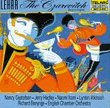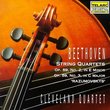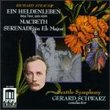| All Artists: Arcangelo Corelli, Neville Marriner, Academy of St. Martin-in-the-Fields Title: Corelli: Concerti Grossi, Op.6 Members Wishing: 1 Total Copies: 0 Label: Decca Release Date: 5/16/1995 Genre: Classical Styles: Forms & Genres, Concertos, Historical Periods, Baroque (c.1600-1750) Number of Discs: 2 SwapaCD Credits: 2 UPC: 028944386226 |
Search - Arcangelo Corelli, Neville Marriner, Academy of St. Martin-in-the-Fields :: Corelli: Concerti Grossi, Op.6
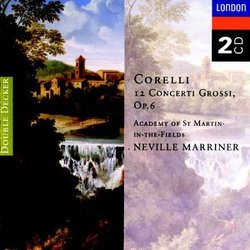 | Arcangelo Corelli, Neville Marriner, Academy of St. Martin-in-the-Fields Corelli: Concerti Grossi, Op.6 Genre: Classical
|
Larger Image |
CD DetailsSimilarly Requested CDs
|
CD ReviewsConerti Grossi Op 6 katja_r | 10/27/2000 (5 out of 5 stars) "There are many ways to enjoy the music on this CD. As with many recordings from the Baroque era this one makes great wallpaper. I find that hearing it while I do other things brightens my day without being intrusive. Although ambient music is usually credited as a product of the twentieth century, I find that this music also creates a delightful ambience. On the level of musical history, Arcangelo Corelli (1653-1713) is an interesting composer. Handel and Locatelli are some of his more famous students. The Brandenburg Concertos reveal that Bach also was influenced by his music. Timothy A. Smith identifies Corelli as a "critical link in the evolution of the Baroque concerto grosso and sonata formats." He is credited as a master of the trio sonata which became the source of the Classical era symphonic form. A pioneer of violin technique and originator of synchronized bowing in an orchestra, he was hailed as the greatest virtuoso of the violin in his time because of his technical mastery. In modern vernacular, he was a "Rock Star". Corelli's place in history makes this music interesting to me, knowing that he was held in high esteem by great composers. This is not to suggest that the music is uninteresting. I find that when I pay attention, I am amply rewarded. C.#3 in C minor has an arresting beginning with sustained chords which remind me of some of Haydn's symphonies. C.#10 in C major breaks with tradition as it contains five movements. This may not seem scandalous to us three centuries removed, however, these types of details provoked prolonged and acrimonious dispute, according Christopher Hogwood who wrote the notes. He writes that a notorious scandal erupted when, in one of Corelli's Opus 2 trios, it was suspected he had used consecutive fifths. Both the Preludio and Adagio are grand and the Allegro approaches a frenetic pace. C#9 in F major introduces the Adagio with a lilting melody on a theorbo (lute). All of the Concerti are great, even so, these are the ones I enjoy the most. You may find others which you enjoy. If you are interested in one of the greatest composers of the Baroque period or in music which is pleasent, this CD will be interesting to you." Beautiful, fresh, intense, serene. katja_r | 11/28/1998 (5 out of 5 stars) "I'm not really educated when it comes to classical music. I just know what I like. This recording of Arcangelo Corelli is absolutely astounding! Each and every piece on both disks is superb. It's soothing and yet alive. #10 Grave - Andante Largo is oh so short, but soulfully melodious and intricate.The violeins in #14 Allemanda: Allegro are crisp and clean. #15 Corrente: Vivace is elegant. If you like Vivaldi and Scarlatti you will like these two disk. Well worth every penny." I think that this is a wonderfull compolation of music! Patrick G. Andre | 02/04/1999 (5 out of 5 stars) "I think that this recording is great! I enjoy playing many of these same works in the orchestra that I am in! I strongly recomend it to anyone!"
|

 Track Listings (19) - Disc #1
Track Listings (19) - Disc #1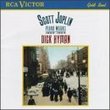

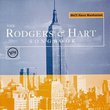
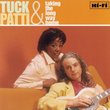


![Across The Universe [Deluxe Edition]](https://nationalbookswap.com/cd//m/51/1251/1241251.jpg)
